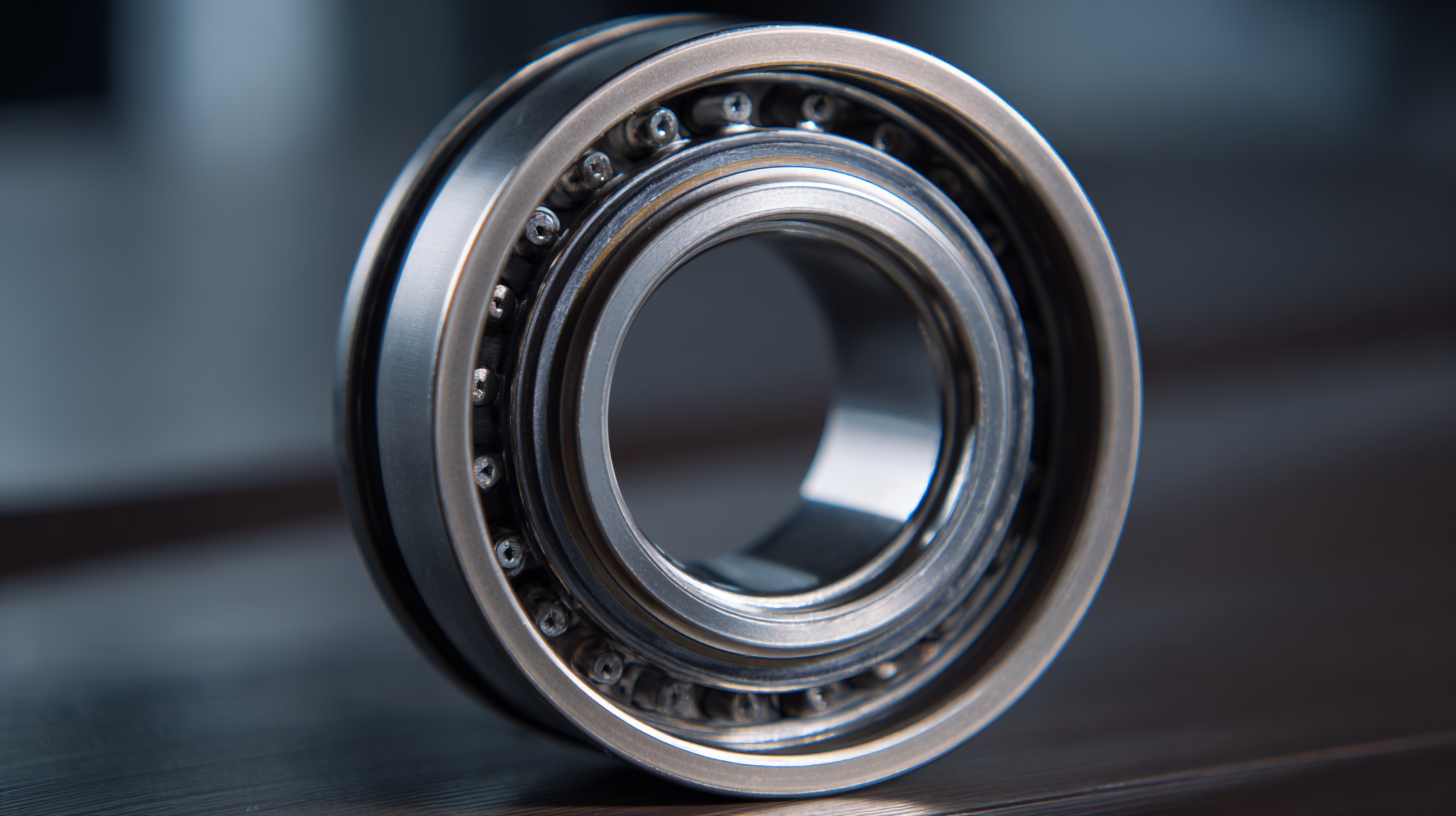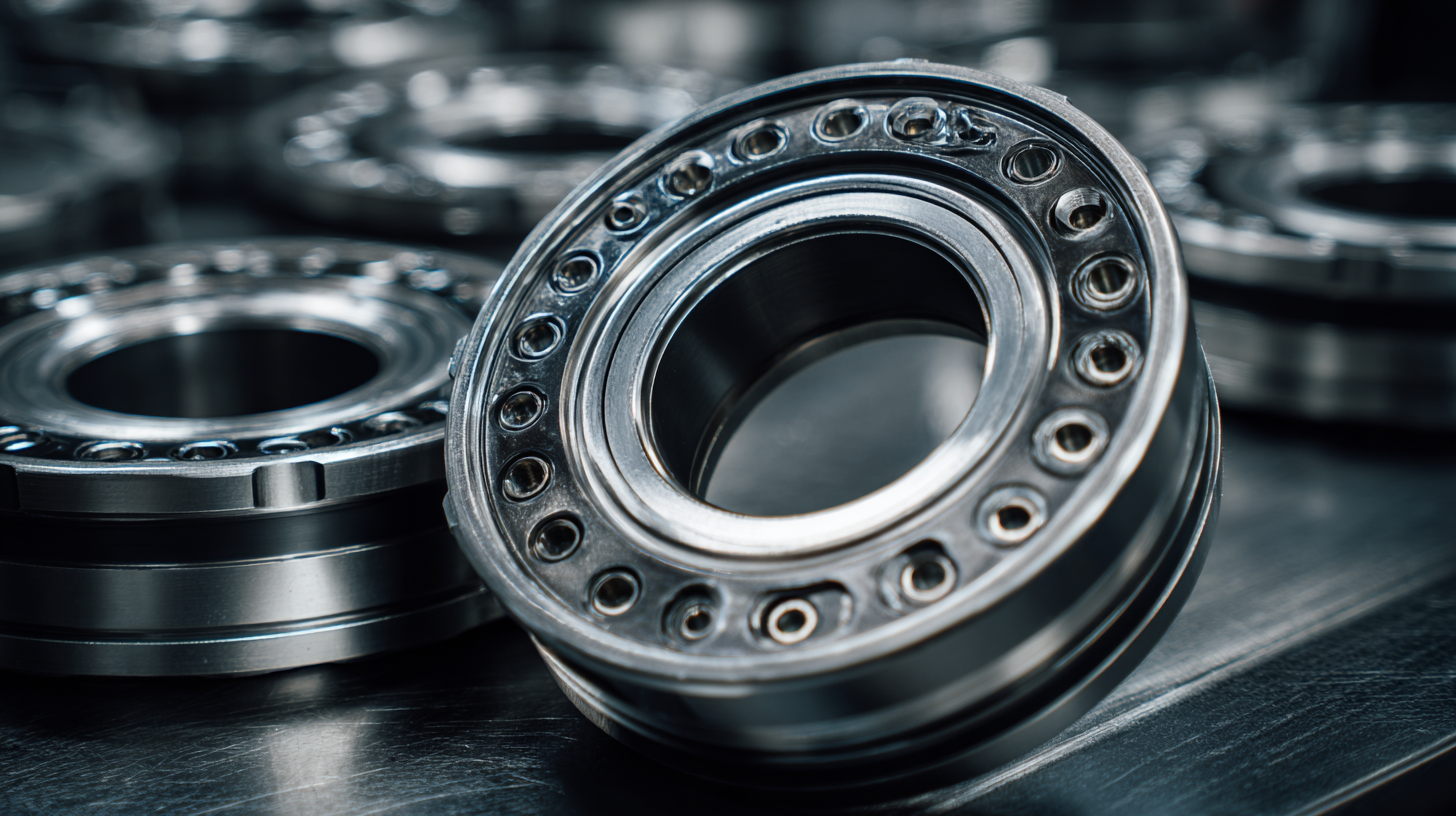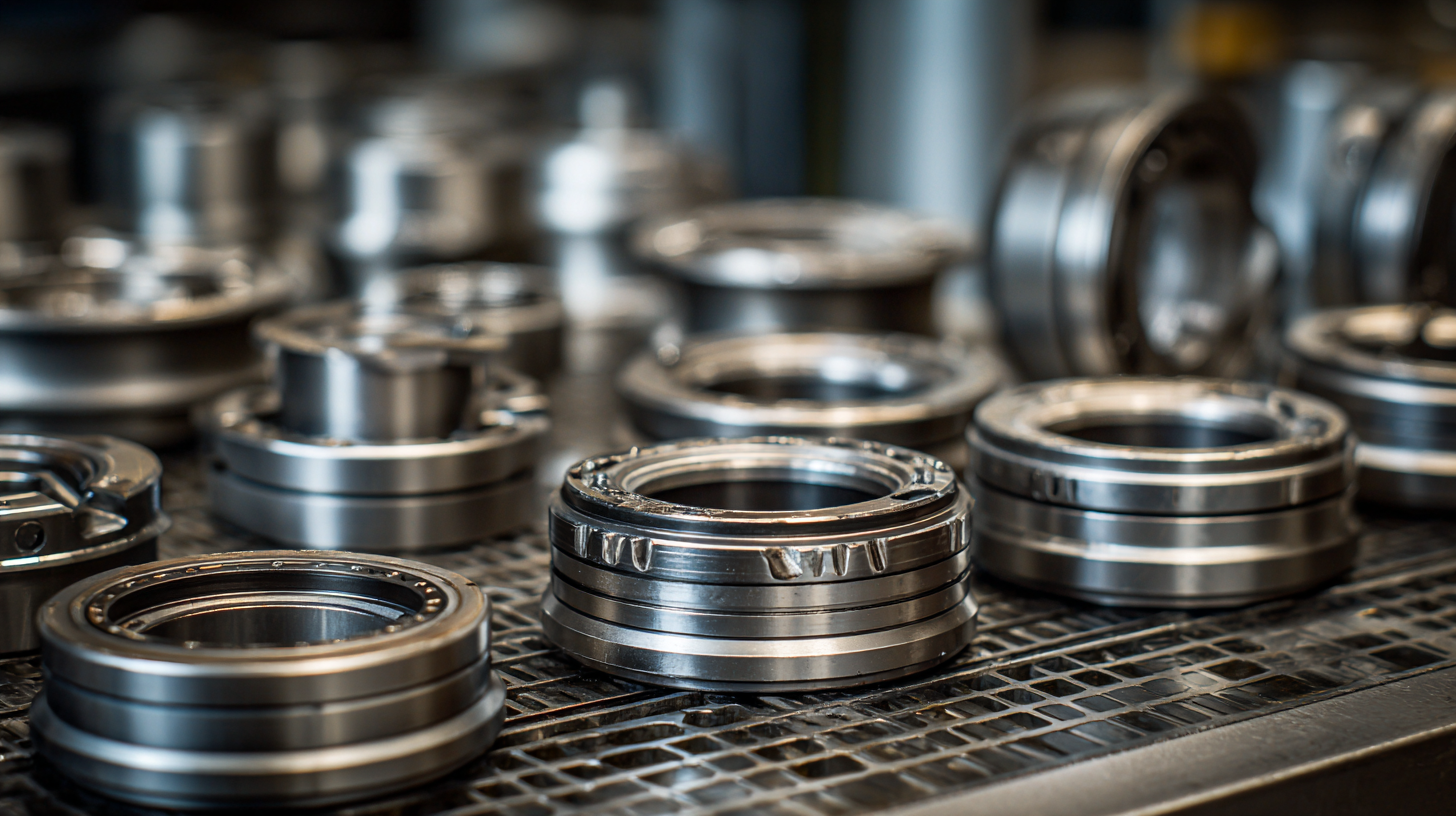In the realm of automotive manufacturing, the significance of high-quality auto bearings cannot be overstated, as they play a critical role in ensuring vehicle performance and safety. According to a recent industry report by MarketsandMarkets, the global automotive bearing market is projected to reach $47.25 billion by 2026, growing at a CAGR of 5.7% from 2021. This growth is fueled by the rising demand for fuel-efficient vehicles and the increasing emphasis on reducing vehicle emissions, which in turn drives manufacturers to seek the most reliable and advanced bearing solutions.

As Chinese manufacturers continue to strengthen their position in the global market, their commitment to quality and innovation has enabled them to earn the trust of various international automotive brands. Therefore, understanding how to choose the top manufacturers when sourcing auto bearings is crucial for businesses aiming to stay competitive in this rapidly evolving landscape.
When evaluating auto bearing manufacturers in 2025, several key considerations come into play, especially in light of recent trends in global manufacturing and industry dynamics. One primary factor to consider is a manufacturer's ability to adapt to changing market demands, particularly in the wake of shifting dependency on foreign companies and the push for localized production. Understanding how manufacturers are positioning themselves amid these trends will be crucial in identifying those poised for success.
Another vital consideration is the compliance with manufacturing standards and the implementation of rigorous quality control processes. As seen in recent developments in biomanufacturing, establishing a Good Manufacturing Practice (GMP)-compliant process not only enhances product reliability but also fosters trust among stakeholders. This is particularly important as the auto bearing industry faces increasing scrutiny over product quality and durability. Manufacturers focusing on advanced analytics and innovative manufacturing techniques will likely emerge as leaders in this competitive landscape.
Emerging technologies are significantly reshaping the auto bearing manufacturing landscape, leading to enhancements in both production processes and product quality. Innovations such as automation, artificial intelligence, and advanced materials are now at the forefront of bearing design and production, allowing manufacturers to streamline operations and improve precision.
Automated systems reduce human error while increasing manufacturing speed, thereby increasing overall efficiency. Intelligent algorithms also enable predictive maintenance, ensuring that bearings meet performance standards and have longer lifespans.
Moreover, the use of advanced materials, including high-performance composites and alloys, contributes to superior bearing quality. These materials offer improved resistance to wear and corrosion, which is particularly crucial in the demanding environments of modern automotive applications. Additionally, technologies like 3D printing are revolutionizing design possibilities, enabling manufacturers to produce complex shapes and tailored solutions that traditional methods cannot achieve. As these technologies continue to evolve, it's essential for manufacturers to adapt and innovate to maintain a competitive edge in the auto bearing market.
In the bearing manufacturing industry, sustainability and environmental practices have become paramount. According to a recent report by the Global Industry Analysts, the demand for eco-friendly bearings is projected to grow at a compound annual growth rate (CAGR) of over 7% by 2025. Manufacturers are increasingly adopting practices aimed at reducing waste and carbon footprints, addressing both regulatory pressures and consumer expectations for greener products.

Companies are investing in sustainable materials and energy-efficient production processes. For instance, a study from the International Journal of Advanced Manufacturing Technology highlighted that the use of recycled materials in bearing production can reduce energy consumption by up to 30%. Additionally, initiatives like life cycle assessments (LCAs) are being employed to analyze the environmental impact of bearings from raw material extraction to end-of-life disposal. This holistic approach not only enhances sustainability but can also lead to significant cost savings in the long term, making it a crucial factor for manufacturers looking to stay competitive.
When selecting the top manufacturers for auto bearing products, it is crucial to consider current market trends shaping the industry. The global bearings market was valued at USD 46.82 billion in 2024, and it is projected to reach USD 97.10 billion by 2034, demonstrating robust growth potential. This significant increase can be attributed to rising demand across various automotive applications, particularly in the aftermarket sector, which alone is projected to grow to USD 26.61 billion with a compound annual growth rate (CAGR) of 7.32%. Such data highlights the burgeoning opportunities within the automotive wheel hub bearing segment, emphasizing the importance of aligning choices with manufacturers poised for growth.
As the market evolves, prospective buyers should look for brands that not only offer quality products but also innovate in materials and designs to enhance performance and durability. Key factors include manufacturers' expertise in producing high-performance bearings, their commitment to research and development, and their capacity to adapt to changing industry standards. By focusing on these elements, stakeholders can identify leading manufacturers that will provide reliable and cutting-edge auto bearing products in a competitive landscape.
As we look towards 2025, the auto bearing industry is poised for remarkable innovations that promise to enhance performance, durability, and sustainability. One key trend is the development of advanced materials that can withstand higher loads and temperatures, improving the efficiency of vehicles in various conditions. Manufacturers are increasingly experimenting with composites and nanomaterials, which not only reduce weight but also provide superior wear resistance. This shift towards lightweight materials could lead to reduced fuel consumption and lower emissions, aligning with global sustainability goals.
Another critical innovation is the integration of smart technology into auto bearings. The rise of the Internet of Things (IoT) enables bearings to incorporate sensors that monitor performance in real time, providing crucial data on wear and tear. This proactive approach to maintenance can significantly reduce downtime and repair costs, ultimately enhancing vehicle reliability. As auto manufacturers focus on smart engineering solutions, the ability of bearings to communicate with other vehicle systems will likely become a standard feature, setting a new benchmark for efficiency and performance in the automotive industry.

